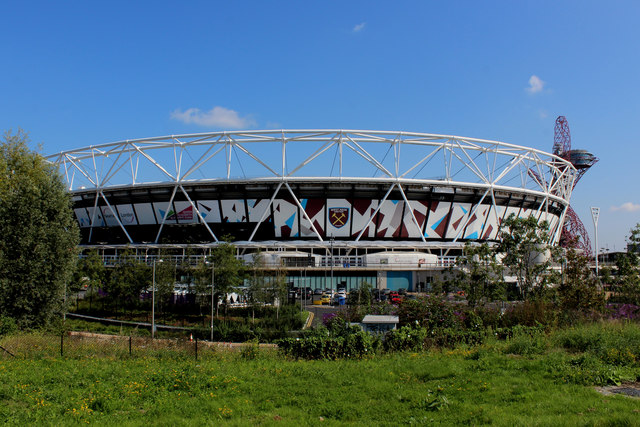Written by : @levylife
They say three things are certain in life. Death, taxes and Pep Guardiola’s Manchester City ripping West Ham to shreds every single year. The triumvirate of the unavoidable; always looming and seemingly impossible to steer clear of.
One could point the finger at West Ham’s tactical approach as the root cause of the crushing defeats handed out by City on a regular basis. Pellegrini’s all-out-attack method plays directly into City’s hands, as they can pick passes out like shooting fish in a barrel, as the Hammers structure melted away on Saturday, after a surprisingly strong start.
The presence of Michail Antonio from the start was a shock to fans, with many expecting summer signing Pablo Fornals to make his debut. One can see why Pellegrini opted for the Englishman over the Spaniard, but the reasons for this make his decision to hook Antonio at half-time even more perplexing.
Antonio’s physical presence out wide to attack Oleksandr Zinchenko on the left, and his pace to compete with Kyle Walker on the right went some way to giving him the nod. Antonio was also arguably West Ham’s best performer in pre-season and deserved a start.
Whilst the proposition of a liquid football-inducing front four of Fornals, Lanzini, Anderson and Wilshere is an exciting one, West Ham would not be able to pass City off the pitch and the early press that was demonstrated by the forward line also fell away.
Antonio was full of direct running and carried the ball well when he received it. His link-up play with Haller looked good too. His half-time substitution and introduction of Fornals was tactical, but one has to question Pellegrini’s thought process of giving Fornals this baptism of fire.
He would surely have been better served to start against the likes of Brighton and Norwich in the coming weeks, matches in theory where West Ham’s new fab four could wreak havoc.
Wilshere, having played well and avoided injury throughout pre-season, also started the game against City. He showed neat touches, drew fouls well and was able to carry the ball through transition on several occasions.
His final pass was wayward more than once and also lacked the pace on the ball to reach his intended target. Sometimes it feels as if he would like more time on the ball than he is afforded, which could be a symptom of his Arsenal upbringing, playing in a team that dominates the ball and dictates the pattern of play.
His lack of defensive nous is was also highlighted against City, with Declan Rice regularly left on his own in the middle third of the pitch as City broke forward. His replacement, Robert Snodgrass, is far more dogged and appears to relish the defensive side of the game.
At the time of Wilshere’s substitution, whilst City’s third goal was chalked off by VAR, the game was slipping away from West Ham.
The aforementioned Snodgrass, in this example, has been sent on as a firefighter to quell the rampant City attack. However, when the game reaches this point, as we have seen over the Guardiola years, the game is beyond West Ham and any previous tactical approach or attacking incentive melts into air.
It can be argued that Antonio and Wilshere’s withdrawals swung the game out of West Ham’s favour but in reality, City would have still won this game comfortably.
West Ham were always going to find taking City on to be a supremely difficult task. Pellegrini’s high defensive line, lack of co-ordinated press and pitting Rice against De Bruyne, Rodri and Silva on his own always pointed to a defeat.
The cogs will eventually click for the Hammers and games against the likes of City and Liverpool are not where they should expect their points to come from. The manner of defeat may be frustrating and, what some may label, embarrassing, but the season is a marathon and not a sprint and occasionally we are going to trip over our own laces.



